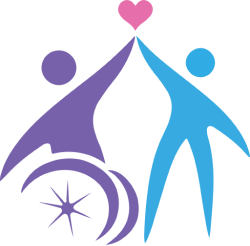The Emergency Preparedness Workbook for People with Disabilities will guide you through the process of gathering the information and supplies you will need if a disaster strikes. It is filled with worksheets, checklists, and tips to help you prepare for an emergency.
Enforcement: Intake of fair housing complaints and counseling on options for administrative or judicial remedy. Investigative services for persons who allege housing discrimination. Systemic investigations of institutional discrimination.Fair Lending: Investigates allegations of predatory lending, mortgage rescue scams and other fair lending violations. Monitors financial institutions' fair lending practices. Provides information to financial institutions on how to improve service to low and moderate income communities and people of color. Provides technical assistance and education on fair lending and foreclosure prevention to lenders, policy makers and the general public.Inclusive Communities: Technical assistance and professional support to community organizations, developers and local policy makers on inclusionary housing policies and the promotion of racial and economic integration. Assistance with consumers’ access to pro-integrative housing choices. Research, analysis and documentation of fair and affordable housing opportunities and impediments.Outreach and Education: Presentations to consumers, advocates and the general public. Fair housing training for members of the housing industry. Fair housing technical assistance and professional support to government agencies, civil rights organizations, social service agencies and housing providers. Development and distribution of fair housing educational materials.
53713
Service dogs are specially trained for families of children* with autism, and related diagnoses, such as but not limited to Down Syndrome, Fragile X, Apraxia, and ADHD. Good Dogs are trained to perform specific tasks to mitigate these disabilities. Examples of tasks include applying pressure, receiving pressure, interrupting or redirecting behavior, providing focus and grounding, and creating a social and communicative bridge. All service dogs are placed as teams of three that include the dog, child, and a parent/caregiver who lives with the child and serves as the primary dog handler.*The term “child” refers to a person with a disability of any age who is not going to be handling the dog independently and/or who may be able to handle the dog independently in the future. We do not have an age limit for our service dog recipients paired with an adult handler.
92028
Our service dogs for children with autism help them gain confidence and independence. Together, they will experience newly found social interactions, increased communication abilities, and also assist with daily living activities. In the presence of triggers (e.g., loud noises) our dogs perform grounding behaviors.
Autism Assistance Dogs are not only a living miracle to the affected child or adult, but also to the entire family. These special dogs are trained to assist the individual, and in some cases the parents of the child, in a variety of ways.
